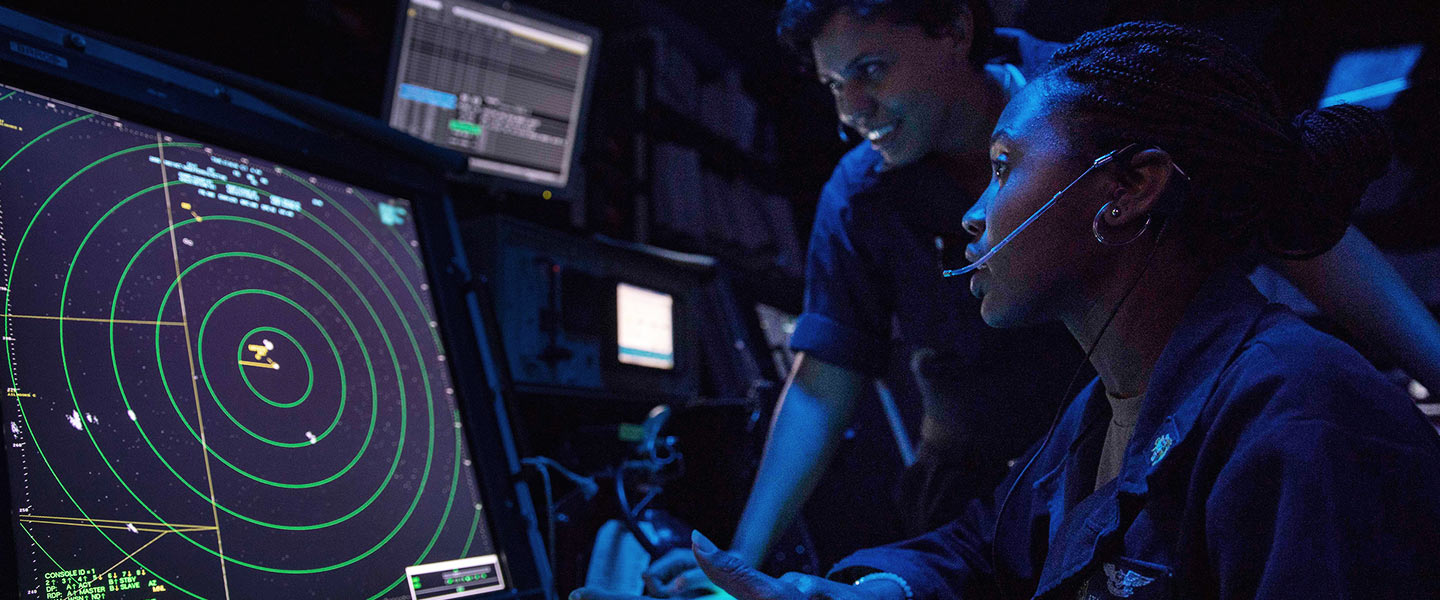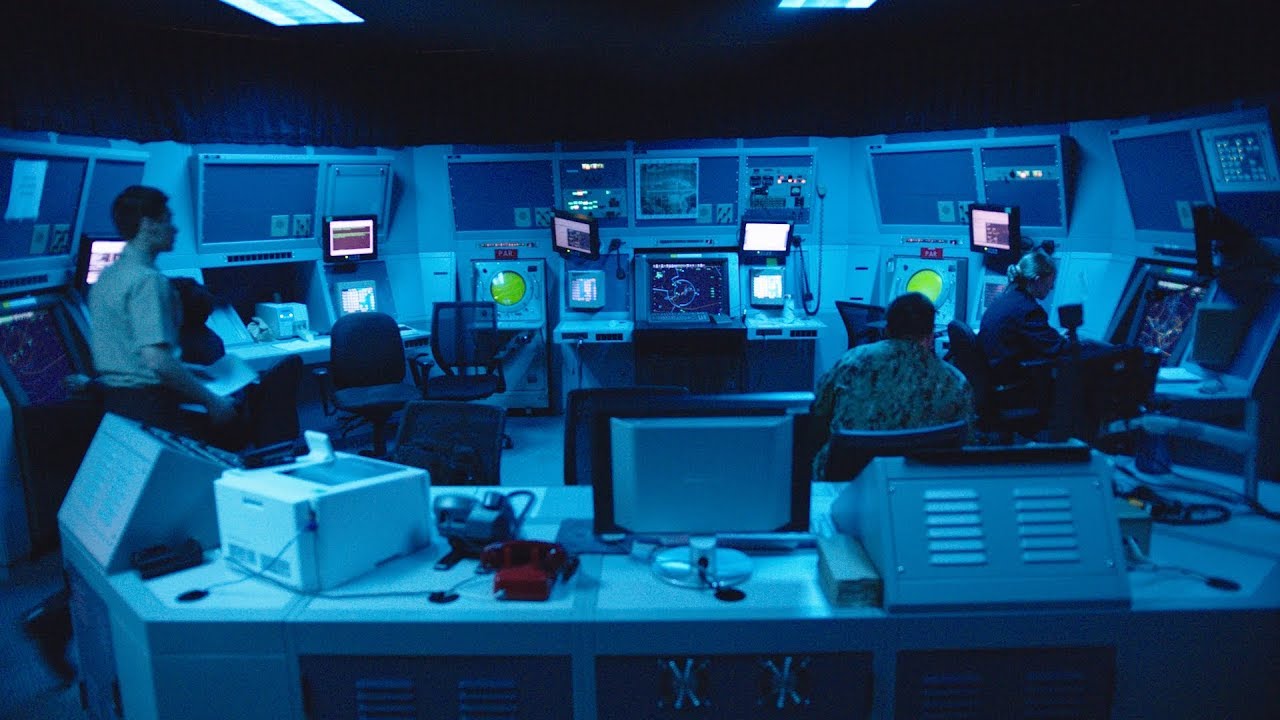What to Expect
More Information
Responsibilities
The successful operation of a flight deck on an aircraft carrier is one of the most complex, high-stakes exercises on the planet. It’s no small task to ensure that each aircraft that leaves the flight deck performs its mission successfully and returns home safely. Navy Air Traffic Controllers are essential in directing the everyday complexities above and below the flight deck. Their responsibilities include:
- Providing air traffic control services in air traffic control towers, radar air traffic control facilities, fleet area control and surveillance facilities and air operations ashore and afloat
- Operating radio communication systems and light signals
- Performing aircraft tactical duties as a flight engineer, loadmaster and/or reel operator
- Executing handling duties related to the launch and recovery of Naval aircraft
- Interpreting data shown on radar screens to plot aircraft positions
- Operating tactical weapons, sensors and communications equipment
- Working with Pilots to operate and control aircraft systems
Work Environment
As an Air Traffic Controller, you’ll make the world your home. You may be assigned to sea or shore squadrons on almost any continent. You will have the opportunity to work in a variety of environments – from airborne aircraft to hangars, hangar decks to flight decks, and flight lines at air stations and on aircraft carriers.
Training & Advancement
Upon completion of initial training at Recruit Training Command Great Lakes (known as Boot Camp), you’ll report for specialized training, including:
Class “A” Technical School (15 weeks) in Pensacola, FL, for training in fundamentals of Air Traffic Control, radar and radio communications Group Instruction and simulators.
Additional training may be required depending on your assignment. ACs can expect to receive specialized training on specific aircraft or equipment relevant to your assignment before reporting for operational activities.
After you’ve completed training, you may be stationed in traffic control centers on aircraft carriers or at air traffic control facilities in the United States or overseas. As an AC, you can expect approximately 30% of your assignments to take place at sea.
Promotion opportunities are regularly available but competitive and based on performance.
Advanced Training
Advanced training as an Air Traffic Controller may also be available during later stages of your career. For those with further leadership aspirations and a college degree, Officer roles may be available, providing opportunities to lead and train others.
Post-Service Opportunities
Specialized training received and work experience gained in the course of service can lead to valuable credentialing and occupational opportunities in related fields in the civilian sector.
Education Opportunities
Beyond offering access to professional credentials and certifications, Navy technical and operational training in the Flight Operations field can translate to credit hours toward a bachelor’s or associate degree through the American Council on Education.
You may also continue your education through undergraduate degree opportunities like the Navy College Program and Tuition Assistance and the Post-9/11 GI Bill.
Qualifications & Requirements
A high-school diploma or equivalent is required to become an Enlisted Sailor and an Air Traffic Controller. You must also be a U.S. citizen eligible for security clearance.
As an AC applicant, you should be interested in aviation and working with aircraft. You should be comfortable with computers and with graphical orientations such as on maps or charts.
Important personal traits for ACs include a good memory, the ability to perform quick mental math calculations and the ability to do detailed work and work as a team member. You should also be physically fit, be able to speak clearly and possess normal hearing and color perception.
General qualifications may vary depending upon whether you’re currently serving, whether you’ve served before or whether you’ve never served before.
Part-Time Opportunities
There are part-time opportunities available as an Air Traffic Controller.
Serving part-time as a Navy Reserve Sailor, your duties will be carried out during your scheduled drilling and training periods. During monthly drilling, Air Traffic Controllers in the Navy Reserve typically work at a location close to their homes.
For annual training, Air Traffic Controllers may serve anywhere in the world, whether on a ship at sea or at bases and installations on shore.
Take a moment to learn more about the general roles and responsibilities of Navy Reserve Sailors.
Most of what you do in the Navy Reserve is considered training. The basic Navy Reserve commitment involves training a minimum of one weekend a month (referred to as drilling) and two weeks a year (referred to as Annual Training) – or the equivalent of that.
Air Traffic Controllers in the Navy Reserve serve in an Enlisted role. Before receiving the ongoing professional training that comes with the job, initial training requirements must be met.
For current or former military Enlisted servicemembers, prior experience satisfies the initial Recruit Training requirement, so you will not need to go through Boot Camp again.
For those without prior military experience, you will need to meet the initial Recruit Training requirement by attending Boot Camp in Great Lakes, IL. This training course will prepare you for service in the Navy Reserve and count as your first Annual Training.

































































































































